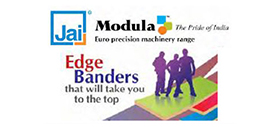Warning: Trying to access array offset on value of type null in /var/www/vhosts/woodnews.in/httpdocs/wiphp/wi_articledetail.php on line 33
Warning: Trying to access array offset on value of type null in /var/www/vhosts/woodnews.in/httpdocs/wiphp/wi_articledetail.php on line 34
Warning: Trying to access array offset on value of type null in /var/www/vhosts/woodnews.in/httpdocs/wiphp/wi_articledetail.php on line 35
Warning: Trying to access array offset on value of type null in /var/www/vhosts/woodnews.in/httpdocs/wiphp/wi_articledetail.php on line 36
Warning: Trying to access array offset on value of type null in /var/www/vhosts/woodnews.in/httpdocs/wiphp/wi_articledetail.php on line 37
Warning: Trying to access array offset on value of type null in /var/www/vhosts/woodnews.in/httpdocs/wiphp/wi_articledetail.php on line 38
Warning: Trying to access array offset on value of type null in /var/www/vhosts/woodnews.in/httpdocs/wiphp/wi_articledetail.php on line 39
Warning: Trying to access array offset on value of type null in /var/www/vhosts/woodnews.in/httpdocs/wiphp/wi_articledetail.php on line 40
Warning: Trying to access array offset on value of type null in /var/www/vhosts/woodnews.in/httpdocs/wiphp/wi_articledetail.php on line 43
Warning: Trying to access array offset on value of type null in /var/www/vhosts/woodnews.in/httpdocs/wiphp/wi_articledetail.php on line 44
No Article Added
Comments

- ‘Red gazelle’ makes window installation easy
- Felder’s solutions for window and door production
- Versatile sliding-folding systems from Hafele
- Door line automation from Woodtech Consultants
- Accutec solutions for uPVC windows
- Jowat’s VOC-free primer for window profile wrapping
- Flexible solutions for doors, windows from SCM
- Tostem introduces Giesta steel doors; calls for dealers
- Folder system by Salice optimises cabinet space
- Turakhia has top-quality veneers for doors
- Mirka has solutions for difficult sanding of doors
- When Lamello’s Cabineo became a game changer
- Digital lacquer embossing for flooring from Hymmen
- Weber sanders help achieve luxury surfaces
- Hettich earns BIS nod for hinges, runners
- The importance of selecting the correct tools
- 3D is printing sustainable housing solutions
- Hard or soft? Researchers discover new wood type
- CLT shelter withstands severe seismic testing
- Japan World Expo gets largest wooden structure
- A collaboration of craft and (woodworking) culture
- ‘Reading consumer mindset is the key to success’
- PRECIOUS METTLE
- UF resin: blessing in disguise
- Cost savings for new factory investments
- ‘Natural’ is in, but efficiency is still at a premium
- What CAD, CAM software are best?
- Which drawer slides suit you best?
- First, back to the basics!
- Nolte Küchen has ₹17-cr plan for India expansion
- For compressed air, it’s Atlas Copco
- Häfele has fittings for all needs
- Holistic approach with Hettich’s magical solutions
- Salice’s Folder system optimises space
- WAF has two winning Indian entries
- Turkish designers delight with US hardwoods
- Decora joins hands with FFSC for skill academy
- Skill development comes to Udaipur’s furniture industry
- Forest management for sustainable supply from B.C. Canada
- New chapter in furniture innovation at CIFF 2025
- 3rd tech-together, exhibition at Hymmen
- imos organises Technology Day in Delhi
- Entries open for Interzum Awards 2025
- Ligna 2025 sees strong demand for participation
- MTC contest showcases creativity from wood waste
- TIWF 2024 concludes successfully
- Event-Calendar
- Egger’s ‘Capsule Concept’ creates harmonious décor
- Grass releases RAT system for cabinetry
- State-of-the-art edge bander from Jai
- SCM’s Balestrini centres for solid wood
- Sugatsune introduces new concealed hinge for doors
- Aryamman brings home Konrad Hornschuch products
- Automatic beam saw with twin pusher from Woodtech
- Seamless functional doors from Fiamarc
- Felder offers range of wide belt sanders
- OptiSaw 3.2 Panel Saw
- New guidelines to curb ‘green-washing’
- Ozone opens Experience Centre in Bengaluru
- Dieffenbacher takes over Schmidt & Heinzmann
- Egger invests in sustainability and automation
- Demand for American Oak soars in India
- Nitori to open first store in India
- Bureau Veritas acquires AI company
- Siempelkamp secures syndicated loan
- Merino to reduce carbon footprint
- Ebco’s new campaign features ‘Boom-Boom’ Bumrah
- SCM wins SMAU innovation award
- Unilin wins patent for flooring
- WhatsApp kicks off training for businesses
- SCM takes over Mecal Machinery
- Rajesh Mittal to head FIPPI
- Birla Opus opens fourth paints factory
- Greenply roots for ‘Pushpa 2’
- Wooden Street raises ₹354 cr. in funding
- Ashima Kaul recognized as top HR Leader









































